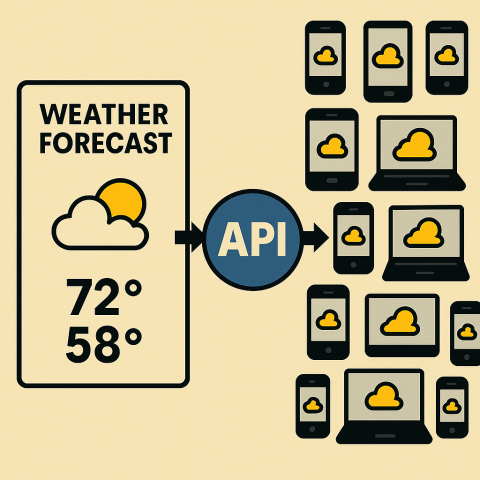eCommerce Trends 2025
The e-commerce landscape has been evolving at a rapid pace over the past few years and in 2025 it is expected to become even more integral to the global retail ecosystem. As digital technologies continue to advance and consumer behaviours shift, the dynamics of online shopping are transforming to new demands and opportunities. In this article we will explore the key e-commerce trends anticipated in 2025, highlighting the innovations and changes that are set to shape the future of online retail.
1. Rise of Augmented Reality (AR) in Online Shopping
In 2025 augmented reality is expected to redefine the online shopping experience. AR technology enables consumers to visualise products in the real-world context before making a purchase, significantly enhancing the virtual shopping experience. For instance, furniture retailers will likely offer AR capabilities that allow customers to visualise how a new sofa might look in their living room, reducing uncertainty and increase buyer confidence. Similarly, fashion retailers will provide virtual fitting room experiences, allowing users to try on clothes and accessories virtually, ensuring a perfect fit before committing to a purchase.
2. Further Integration of Artificial Intelligence (AI)
Artificial Intelligence is already an integral part of e-commerce but in 2025 its role will be even more pronounced. Retailers will leverage AI-powered chatbots for improved customer service, providing instant, personalised assistance. Moreover, AI-driven recommendation engines will offer highly tailored shopping experiences by analysing consumer behaviour, preferences, and purchase history to suggest products predicated on individual tastes.

AI will also be employed to optimise supply chain management, predicting demand more accurately and reducing delivery times through AI-powered logistics. The implementation of AI in managing inventory and forecasting trends will provide retailers with a competitive edge, ensuring that they meet ever-evolving consumer demands efficaciously.
3. Sustainability as a Central Focus
As consumers become increasingly environmentally conscious, sustainability will be a critical trend in e-commerce in 2025. Consumers will expect brands to demonstrate commitment to eco-friendly practices, from carbon-neutral shipping options to sustainable packaging solutions. Retailers will need to invest in green initiatives and transparently communicate these efforts to their audience to build trust and differentiate themselves in a crowded market.
Brands that incorporate sustainable practices throughout their supply chain, such as using renewable energy sources, minimising waste, and supporting fair trade practices, will likely see greater loyalty and higher sales. This shift towards sustainability will not only benefit the environment but also provide companies with a competitive edge as consumers become more discerning about the brands they support.
DID YOU KNOW
That using recycled materials like paper and biodegradable plastics can cut packaging waste by up to 90% compared to traditional materials
4. Expansion of Voice Commerce
Voice commerce is set to become a mainstream component of online shopping in 2025. With advancements in natural language processing (NLP) and the proliferation of smart speakers and voice-activated devices, consumers will increasingly use voice commands to shop online. Brands will need to optimise their platforms for voice search and ensure seamless integration with smart devices to tap into this growing trend.
Voice commerce will provide unparalleled convenience, allowing consumers to easily order everyday items, track deliveries, and reorder frequent purchases using simple voice commands. Retailers who adopt voice commerce early will be well-positioned to capitalise on this burgeoning market.
5. Increasing Use of Blockchain Technology
Blockchain technology is poised to revolutionise e-commerce in 2025, offering enhanced transparency, security, and efficiency. As consumer concerns about data privacy and security mount, blockchain presents a solution by providing a decentralised, tamper-proof ledger of transactions.
E-commerce platforms will leverage blockchain to ensure the authenticity of products and streamline payment processes. Moreover, smart contracts will automate various aspects of e-commerce transactions, reducing the need for intermediaries and lowering transaction costs. This technology will foster consumer trust by providing greater transparency in transactions and ensuring more secure data handling practices.
6. Growth of Social Commerce
Social media platforms will play an increasingly vital role in e-commerce in 2025, as social commerce becomes more prevalent. Consumers will expect seamless shopping experiences directly from their preferred social platforms. Platforms like Instagram, TikTok, and Pinterest will provide enhanced shopping features, allowing users to purchase products without leaving the app.
Retailers will need to employ effective social commerce strategies, leveraging influencer marketing, user-generated content, and social proof to engage consumers and drive sales. By combining the power of social media with e-commerce, brands can create a more interactive and engaging shopping experience.
DID YOU KNOW
Did you know that social commerce is projected to reach a global valuation of around $604 billion by 2027? Driven by increased smartphone usage, social media engagement, and consumers' preference for seamless, interactive shopping experiences.
7. Enhanced Personalisation and Customer Experience
Personalisation will reach new heights in 2025, as e-commerce platforms employ advanced data analytics to deliver a hyper-personalised shopping journey. Retailers will focus on crafting bespoke experiences for each customer, utilising data to tailor product recommendations, communication, and promotional offers.
The customer experience will be central to the e-commerce strategy, with brands prioritizing seamless navigation, quick loading times, and intuitive interfaces. Enhanced personalisation will improve customer satisfaction and build brand loyalty, ensuring that consumers feel valued and understood.
Conclusion
The e-commerce landscape in 2025 will be defined by technological advancements and a deeper understanding of consumer needs and preferences. As augmented reality, artificial intelligence, and blockchain technology become more widespread, the online shopping experience will be more interactive, secure, and personalised than ever before. Retailers that embrace these trends and commit to sustainable practices will position themselves for success in the increasingly competitive e-commerce market. As we look towards the future, one thing is certain: the evolution of e-commerce will continue to transform the way we shop and interact with our favourite brands.
Explore our library of FREE expert articles to help you build, improve, and grow your website.
bespokeuk.com/posts/amplify-your-roi-10-ecommerce-website-design-strategies-for-2024
bespokeuk.com/posts/why-websites-load-slow-simple-explanations

Mailchimp Alternatives Guide 2025
Is Mailchimp still the best FOR EMAIL MARKETING? Or are UK businesses find...
5 min read

The Hidden Cost of Poor System Integration
Why Poor Integration Between Systems Is Holding Your Business Back And How...
8 min read

Admin Overload: The Silent Business Killer
The cost of manual, repetitive admin tasks In countless small and medium-s...
3 min read


